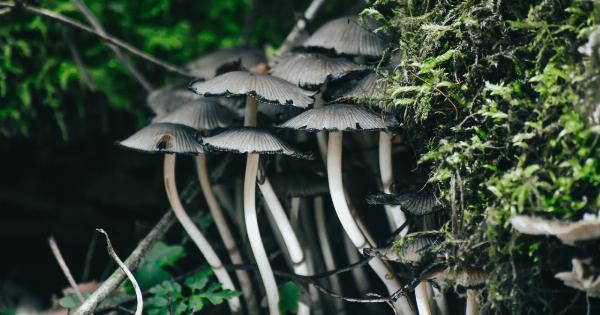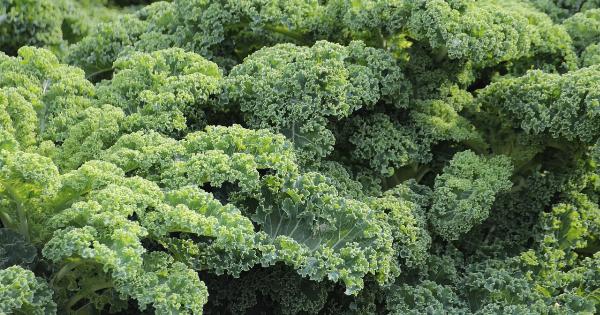Human Papillomavirus (HPV) is a sexually transmitted infection that affects both men and women. With over 100 different types, HPV is the most common sexually transmitted infection worldwide.
While some types of HPV are harmless and go away on their own, others can cause a range of health issues, including genital warts and an increased risk of certain cancers, such as cervical, anal, and throat cancers.
While prevention through vaccination and safe sex practices remains the best approach, researchers are constantly exploring alternative ways to combat HPV.
One particular avenue of interest is the potential role that mushrooms may play in fighting against HPV infections. Mushrooms are a group of fungi that have been used for centuries in traditional medicine across various cultures due to their medicinal properties.
The Anti-HPV Potential of Medicinal Mushrooms
Medicinal mushrooms have gained attention for their potential antiviral, antibacterial, and anti-cancer properties.
Several studies have explored their efficacy against HPV infections, shedding light on the promising potential that mushrooms hold in the fight against this prevalent infection.
1. Coriolus Versicolor.
Coriolus versicolor, also known as Turkey Tail mushroom, is a popular medicinal mushroom used in traditional Chinese medicine. Research has indicated that extracts from Coriolus versicolor possess antiviral activity against various strains of HPV.
These extracts have exhibited inhibitory effects on the oncogenic activity of the virus, suggesting a potential therapeutic role in preventing or treating HPV-associated cancers.
2. Reishi Mushroom.
Reishi mushroom, also known as Ganoderma lucidum, is highly valued for its potential anti-cancer properties.
It has been studied for its impact on HPV, and results have shown that Reishi extracts can inhibit the growth and proliferation of HPV-infected cells. The active components in Reishi have demonstrated the ability to suppress certain proteins involved in HPV replication, potentially impeding the virus’s ability to establish itself.
3. Ashiitaba Mushroom.
Ashiitaba, scientifically known as Angelica keiskei, is a medicinal herb and mushroom native to Japan. It has been traditionally used to promote health and longevity.
Recent studies have focused on its anti-HPV properties, and the results have displayed the potential ability of Ashiitaba mushrooms to suppress HPV viral activity, inhibiting its ability to reproduce and causing death of infected cells.
Unlocking the Mechanisms
While the exact mechanisms through which mushrooms exert their anti-HPV effects are not yet fully understood, researchers have identified several potential reasons for their efficacy:.
1. Immunomodulation.
Mushrooms are known for their immunomodulatory properties, meaning they can regulate and enhance the immune system’s response. By bolstering the body’s natural defenses, mushrooms may help fight off HPV infections more effectively.
2. Antioxidant Activity.
Many mushrooms are rich in antioxidants, which neutralize harmful free radicals in the body. This antioxidant activity may help prevent HPV-induced cellular damage and support the body’s ability to combat the virus.
3. Anti-Inflammatory Effects.
Several mushrooms possess anti-inflammatory properties, which can be beneficial in the context of HPV infections. Chronic inflammation has been linked to an increased risk of HPV-associated cancers.
By reducing inflammation, mushrooms may help lower this risk.
Complementary Approach
It is important to note that while mushrooms may show promise in the fight against HPV, they should not be considered a standalone treatment. Their potential benefits can complement conventional preventive measures and medical interventions for HPV.
Vaccination, routine screening, and safe sexual practices remain the primary strategies in preventing and managing HPV infections.
Consultation with a healthcare professional is essential before considering the use of medicinal mushrooms as a part of any treatment plan.
Possible Future Implications
The exploration of mushrooms and their potential antiviral properties, particularly against HPV, opens up possibilities for further research.
Continued studies may lead to the development of novel therapeutic approaches, including mushroom-derived compounds, as adjuvants to existing HPV treatments.
Moreover, the wider exploration of mushrooms and their unique chemical compounds may unveil additional antiviral properties that could benefit not only HPV but other viral infections as well.
Conclusion
Mushrooms have long been valued for their medicinal properties, and research suggests that they may have the potential to aid in the fight against HPV.
However, it is important to note that scientific evidence is still evolving, and more research is needed to fully understand the mechanisms and potential of mushrooms in combating HPV infections.
While we await further studies, it is essential to prioritize preventive measures such as vaccination and safe sexual practices.
Consulting a healthcare professional for personalized advice is crucial when considering the inclusion of medicinal mushrooms in any treatment regimen.





























